This is a collection of tips, in case you want to buy an electric vehicle in Hawaii.
Renting an EV to test the experience
Before buying, consider renting an EV. Whenever I travel and need a car, I rent an EV or Extended Range EV (BMW i3 or Chevy Volt) on turo.com, which is like AirBnB for cars. This is an excellent way to familiarize yourself with a new car. On several Islands there are also EV rental companies, for example “Mission Zero Hawaii”. Renting one at home will give you additional insight in the public charging situation, and especially now, while there are no tourists youʻll get better deals and help a local business.
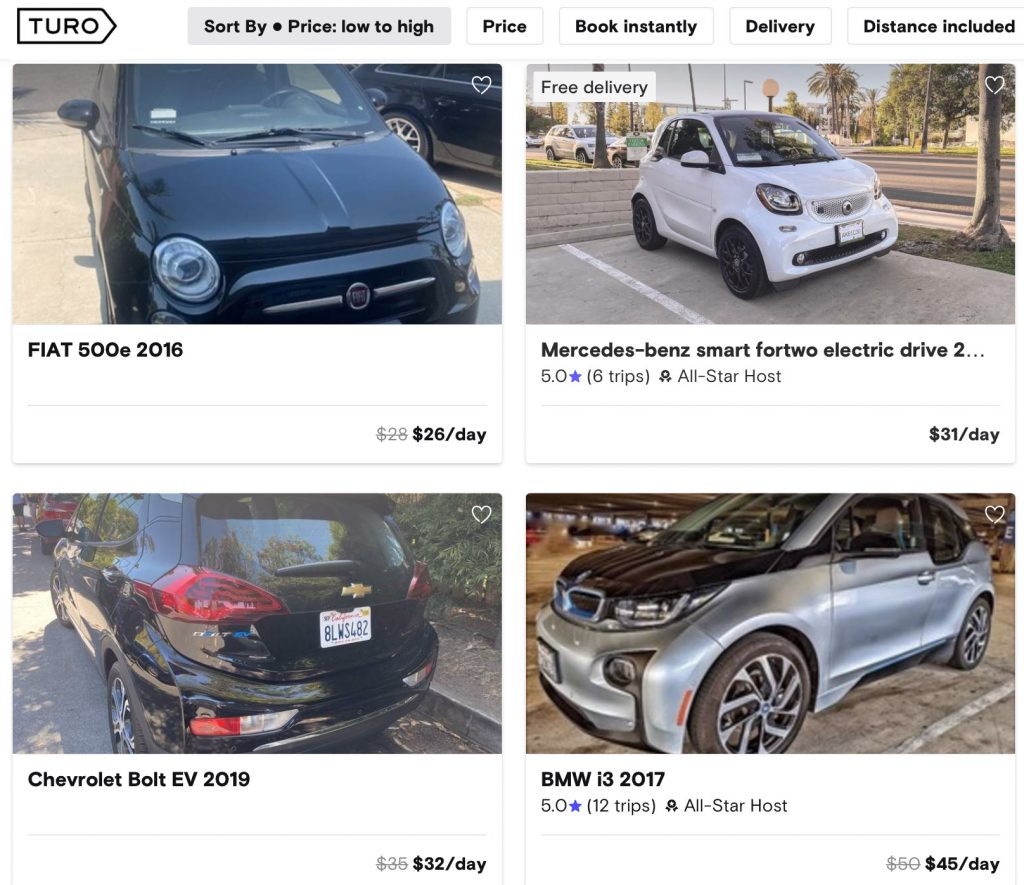
If you are interested in a particular car, it’s good to go to specific EV forums and Facebook groups to read what their owners have to say. Also, every September there are EV Ride&Drives or EV festivals on Oahu, Big Island, and Kauai where EV owners talk story with people who are curious and often take people for a ride or even let them test drive.
Where to Buy New Cars
The Sustainable Transportation Coalition of Hawaii and Blue Planet Foundation are certifying some car salespeople as EV experts, so before you decide where to buy check STCHawaii’s website to see if there is an expert on the car of your interest in your area.
Of course, it is possible other salespeople are knowledgeable about EVs as well. From personal experience, I have found that Aloha Kia dealerships on Oahu and Kauai have knowledgeable staff.
The large car dealerships on Oahu have internet sales departments, and the sales people there are very informed and very motivated. Several of my friends and I had very good experiences buying cars from them. Personally, I test drove the cars I liked (and others) privately or as rentals, asked questions in forums and on a Ride and Drive, and contacted a sales person through the website. We mostly interacted by email, but also talked on the phone, everything went smoothly even though we were on different islands.
In case youʻd rather go to a dealership to look at the cars, call them and ask if they have one on the lot. If your first choice dealer tries to sell you a gas car instead, leave and go to a different dealership. I know of local experiences bad enough to send EV buyers to California.
How to Buy Used Cars
Used electric cars are also available from individuals or car dealerships. The most important quality of a used EV is the battery health, meaning how much the range has been reduced and how the battery has been maintained.
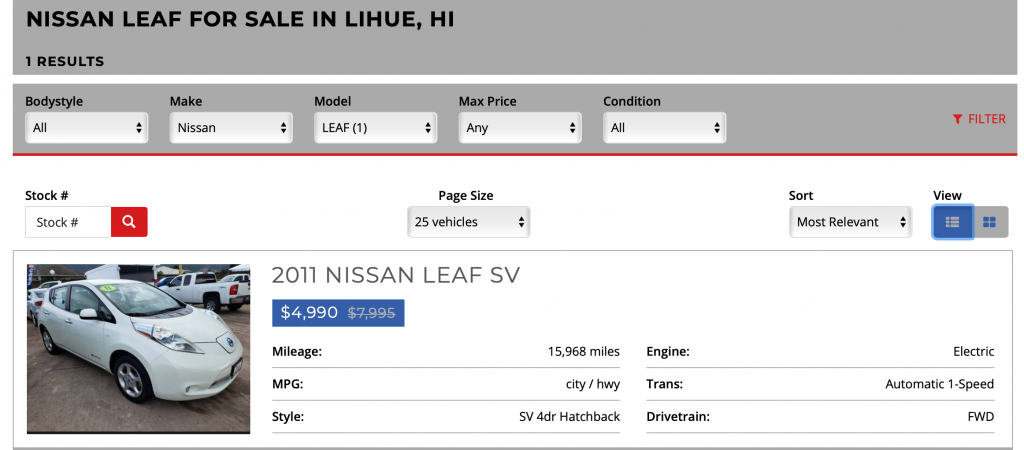
Often used car dealers do not know much about battery health and how to measure it. Learn the terminology, ask the seller about the battery, know how to read and interpret the dashboard indicators, or even test the battery yourself with an OBD-II scanner – smartphone apps like LeafSpy make it really easy.
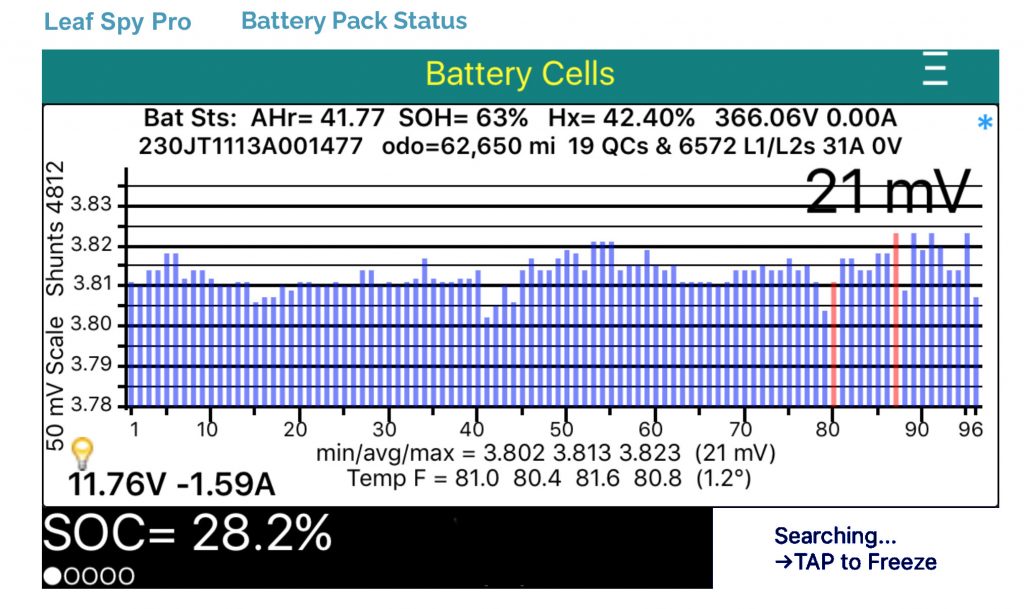
Craigslist is the best option for personal sales, and usually cheaper than the used car dealers. On Facebook there are Auto and Car buy and sell groups on every island, and occasionally EVs for sale get posted in our local Facebook EV groups.
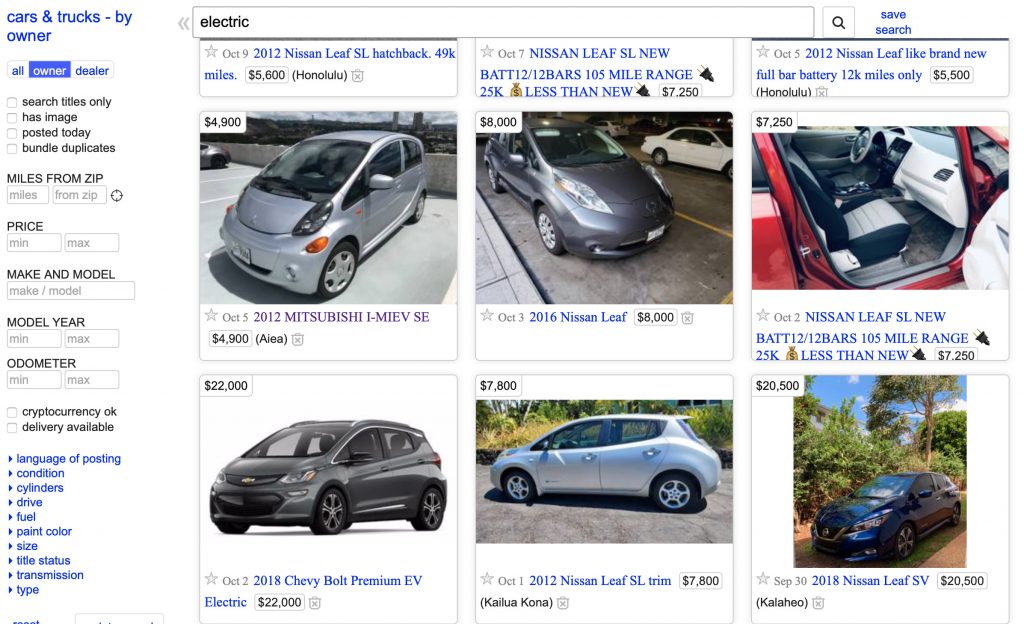
Consider asking EV-driving friends to accompany you to go car shopping. Alternatively, contact your local EV club or Hawaii EV, you can ask questions on Facebook. As part of Kauai EV, I have gone along for car shopping, or will answer questions over email or on the phone.
The incentives and rebates given on new cars trickle down and make the used EVs cheaper. In 2017, there was a $10,000 Nissan rebate additionally to the $7,500 federal tax credit, and used Leafs were an average of $3,000 cheaper than before the rebate and after it had ended.
Which EV is right for me, and what to consider before making any decisions?
One of the first considerations is range: All 2019 and 2020 EVs have better ranges than the previous generations, many have a range above 200 miles.
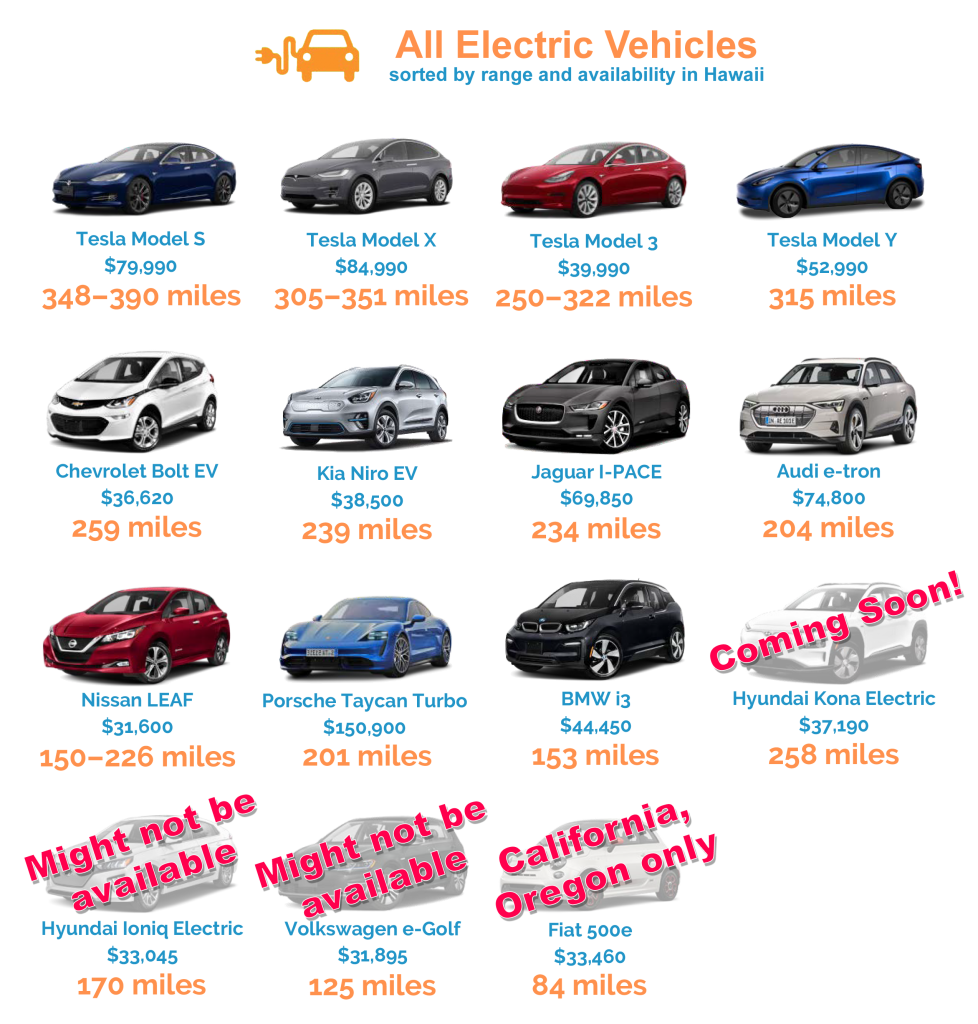
A 2014-2016 Nissan Leaf or Kia Soul with an OK battery (20-24kWh, about 80-100 miles) will be enough for people with a shorter commute, and/or easy access to a charger. In 2016 for some Leaf models, 2017 for all, and 2018 for Kia, they switched to a bigger battery (30kWh) that goes 100-120 miles, which should get you to most places on Kauai, Maui and Oahu.
When comparing prices, consider incentives, such as end-of-year rebates if a model was overproduced, tax credits, and deals between manufacturers and our utilities that often get their customers further rebates.

It pays off to do the math to compare leasing and buying, and to shop around for the cheapest financing options. For example, our first Leaf was financed by Nissan at 0%. That offer was no longer available when we bought our second Leaf, but our credit union gave us a 1.9% loan.
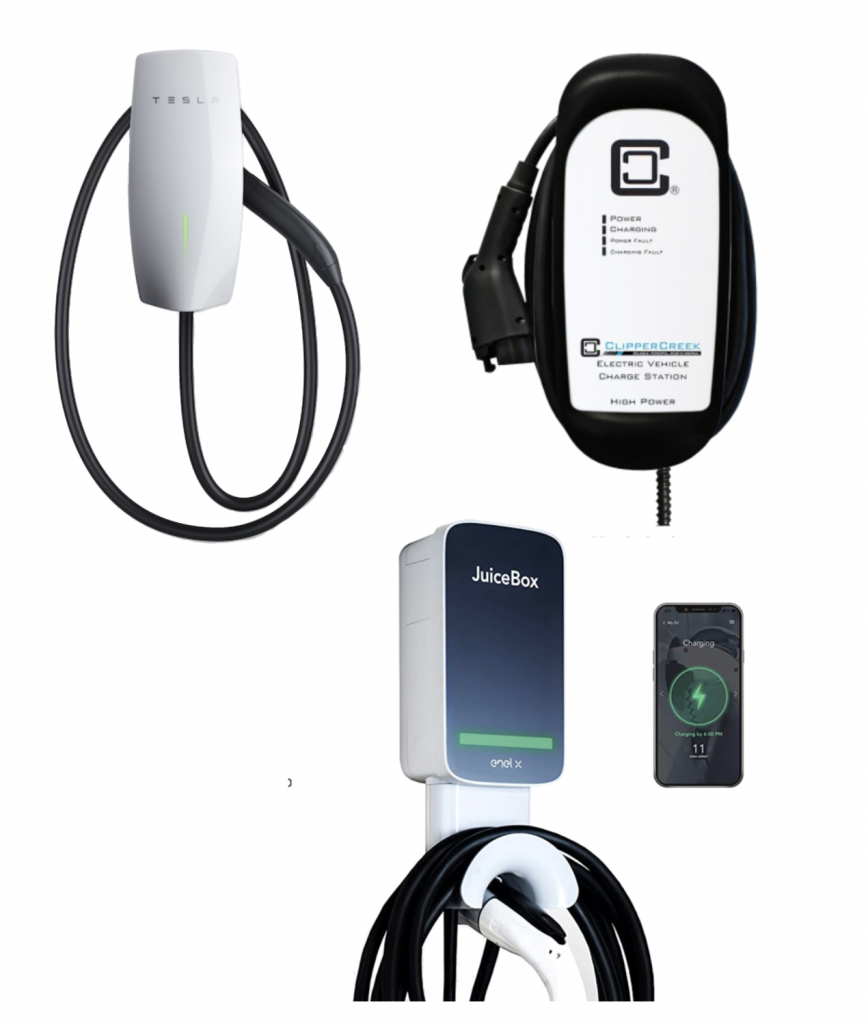
Another question to consider is: how will you charge your car? Do you own or rent your home? It can be tricky for people who rent or live in a condo, a bit more research is needed. If you are a homeowner itʻs probably very straightforward to have an electrician install an EV charger, though count about $500 for the charger (some tax breaks do apply) and another $500 for installation.
In some places you can rely on public chargers, but as a rule of thumb, the less densely an area is populated the fewer chargers it has. Plugshare has a great app and website that will inform you about the local charging situation.
Some great links and resources:

I would like to buy a Tesla Model X Please! Who do I need to contact?
Aloha Tusuenee,
To buy a Model X I’d start at https://www.tesla.com/modelx/design#overview, I’d also check out the Model Y, people rave about it.
A good resource is also http://www.teslahawaiiclub.com
To keep in touch please sign up for our mailing list at the top of the right sidebar, and if you are onFacebook like our FB page https://www.facebook.com/KauaiEV and join the group https://www.facebook.com/groups/KauaiEV. Pre-Covid we had Ride&Drive EVents, where EV owners would bring their cars and show them to interested people, some gave rides, some even let people drive their cars. We hope to get this going again after the pandemic is over.
Mahalo,
Sonja